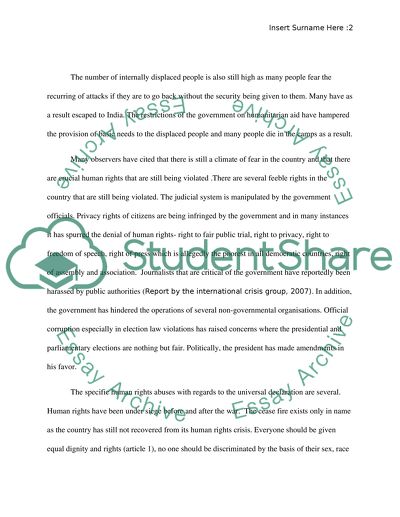Cite this document
(“Violation of Human Rights by Liberation Tigers of Tamil Eelam - Sri Research Paper”, n.d.)
Retrieved from https://studentshare.org/history/1403887-violation-of-human-rights-by-liberation-tigers-of
Retrieved from https://studentshare.org/history/1403887-violation-of-human-rights-by-liberation-tigers-of
(Violation of Human Rights by Liberation Tigers of Tamil Eelam - Sri Research Paper)
https://studentshare.org/history/1403887-violation-of-human-rights-by-liberation-tigers-of.
https://studentshare.org/history/1403887-violation-of-human-rights-by-liberation-tigers-of.
“Violation of Human Rights by Liberation Tigers of Tamil Eelam - Sri Research Paper”, n.d. https://studentshare.org/history/1403887-violation-of-human-rights-by-liberation-tigers-of.


